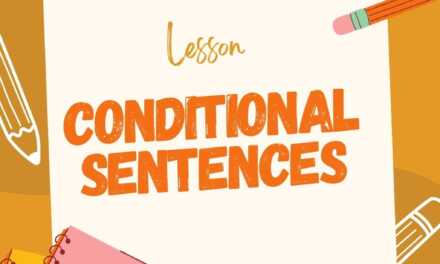Learning English can be a challenging yet rewarding experience. One of the most important aspects of mastering English is understanding its grammar rules. Good grammar helps you to communicate clearly and effectively, and it also enhances your writing skills.
In this quick course, we’ll take a look at some essential English grammar rules that every learner should know.
1. Parts of speech
The first step to mastering English grammar is to understand the different parts of speech. There are eight parts of speech in English, namely:
- Noun: a person, place, thing, or idea.
- Pronoun: a word that replaces a noun.
- Adjective: a word that describes a noun.
- Verb: a word that shows action or state of being.
- Adverb: a word that describes a verb, adjective, or another adverb.
- Preposition: a word that shows the relationship between a noun or pronoun and other words in a sentence.
- Conjunction: a word that connects words, phrases, or clauses.
- Interjection: a word that expresses strong emotion.
2. Subject-verb agreement
Subject-verb agreement is essential in English grammar, as it helps to ensure that your sentences are grammatically correct and easy to understand. To achieve subject-verb agreement, you must match the subject and the verb in terms of number. If the subject is singular, the verb must be singular, and if the subject is plural, the verb must be plural.
For example, consider the following sentences:
- She walks to school every day.
- They walk to school every day.
In the first sentence, the subject “she” is singular, and the verb “walks” is singular. In the second sentence, the subject “they” is plural, and the verb “walk” is plural. This shows that the verb must agree with the number of the subject.
However, subject-verb agreement can become tricky when the subject and verb are separated by other words, such as prepositional phrases or clauses. In these cases, it’s essential to identify the subject and the verb and make sure they match in terms of number.
3. Tenses
Tenses are essential in English grammar as they indicate the time of an action or event. There are three main tenses in English: the present tense, the past tense, and the future tense. Each tense has a continuous and perfect form, which adds more complexity to the English verb system.
The present tense is used to describe actions happening now or regularly. For example:
- I eat breakfast every morning.
The past tense is used to describe actions that have already happened. For example:
- I ate breakfast this morning.
The future tense is used to describe actions that will happen in the future. For example:
- I will eat breakfast tomorrow.
The continuous form of the present, past, and future tense is used to describe ongoing actions that are in progress at a particular time. For example:
- I am eating breakfast right now.
The perfect form of the present, past, and future tense is used to describe completed actions or events. For example:
- I have eaten breakfast already.
4. Articles
Articles are small words that precede nouns to indicate whether the noun is specific or general. There are two types of articles in English: definite and indefinite.
The definite article “the” is used to refer to a specific noun. For example:
- The cat is sleeping on the sofa.
In this sentence, “the cat” refers to a specific cat, and “the” is used to indicate this specificity.
The indefinite article “a” or “an” is used to refer to a general noun. “A” is used before a noun that starts with a consonant sound, and “an” is used before a noun that starts with a vowel sound. For example:
- I have a cat.
In this sentence, “a cat” refers to any cat, and “a” is used to indicate this generality.
Using the correct article can make a significant difference in the meaning of a sentence. For example, “I ate an apple” refers to a single apple, while “I ate the apple” refers to a specific apple.
5. Punctuation
Punctuation marks are essential in English to indicate pauses, tone, and clarity. Some essential punctuation marks include:
- Period: used to indicate the end of a sentence.
- Comma: used to indicate a pause or separation in a sentence.
- Semi-colon: used to connect two related independent clauses.
- Colon: used to introduce a list or explanation.
- Question mark: used to indicate a question.
- Exclamation mark: used to indicate strong emotion.
6. Modal verbs
Modal verbs are auxiliary verbs used to indicate modality, which is the degree of possibility, necessity, or permission. Some essential modal verbs in English include:
- Can: used to indicate ability or possibility.
- Could: used to indicate past ability or possibility.
- Should: used to indicate advice or obligation.
- Must: used to indicate strong obligation or necessity.
Conclusion
These are just a few essential English grammar rules that every learner should know. By mastering these rules, you’ll be well on your way to becoming a proficient English speaker and writer. Remember, practice makes perfect, so keep practicing your grammar skills until they become second nature.

